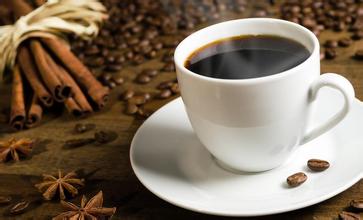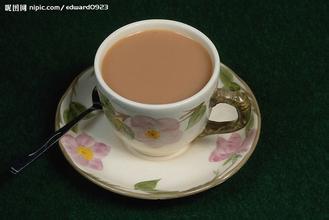The taste of El Salvador Himalayan coffee is mild and the taste of the manor is characterized by the introduction of fine coffee.
Formerly known as "San Salvador" and "Bahia". An important natural deep-water port on the Atlantic coast of Brazil, the capital of Bahia state. It is located on the east bank of Todos (Santos) Bay. With a population of 3459377 (as of August 1, 2010), it is the eighth largest city in Brazil. The ancient city, one of the oldest cities in Brazil, was founded in 1549, and the first churches were built by Jesuit priests in 1549. El Salvador was the capital of Brazil until 1763. It is a comprehensive industrial and commercial city. Oil is produced in the nearby Kandyas oil field. Industries include petroleum refining and petrochemistry, automobiles, food, tobacco, textiles, shipbuilding and so on. There are well-developed land and sea transportation and airports on the outskirts of the city. The port is open and deep, can berth ocean-going ships and super oil tankers, and export textiles, tobacco, coffee, oil and so on. The urban area is built on a peninsula extending into the Atlantic Ocean, divided into high and low cities, with lifts and cable cars connected. Multi-colonial buildings and churches, as well as universities and museums. The seaside has beautiful scenery and is a tourist attraction.
The ancient city of El Salvador was one of the main centers of the slave trade in Africa during the colonial period. In 1558, the first African slaves arrived here and engaged in sugar cane cultivation. Until the middle of the eighteenth century, the port of El Salvador became the main trading center of Portugal; it was located on the triangular trade route between Africa, Brazil and Europe. Many European immigrants settled in this city.
In the 17th century, when Portugal was still under Spanish rule, El Salvador was often attacked by the Dutch. In order to defend the city, many fortresses were built. In 1625, the city was again ruled by the Portuguese.
The ancient city, built on a peninsula extending into the Atlantic Ocean, occupies the end of a mountainous island and is divided into cities by a steep slope.
Scenery of El Salvador
Scenery of El Salvador
And the cities below (upper and lower cities) can be reached by elevator or climb on foot. The city wall preserved along the steep slope is arched. The upper city overlooks the activities of the people in the city below. The uptown has baroque buildings and many small squares, public buildings, dwellings and gardens. They are simple and elegant and keep better than the lower city. The streets here are numerous and narrow, with a variety of patterns on the road, which are paved with black and white stones. There is a Modrow market near the port in the lower city, where houses and people's activities revolve around the port and commerce, where the slave trade used to be very popular. El Salvador is now an extraordinarily busy handicraft market. El Salvador is one of the small countries in Central America with a very dense population. People here love coffee. The coffee in El Salvador tastes well balanced. Salvadoran coffee exports account for 40% of the country's exports. The best quality coffee is exported from January to March each year, and 35% of the extra hard beans are exported to Germany. In the early 1990s, due to the impact of war, the national economy of El Salvador was greatly damaged, even destroyed. The output of coffee has dropped from 3.5 million bags in the early 1970s to 2.5 million bags in 1990-1991 in El Salvador. The coffee beans rich in the Kuskabapa region are the best, with slightly lighter weight, fragrant taste, pure and slightly sour taste. Like Guatemala and Costa Rica, coffee in El Salvador is graded according to altitude, and the higher the altitude, the better the coffee. The best brand is Pip, whose quality has been recognized by the American Organic Certification Society. Another rare coffee is Parkmara, a hybrid of Pacas coffee and Marago Rippi coffee, best produced in western El Salvador, adjacent to Santa Ana, which is close to the border with Guatemala. Parkmara coffee is full-grained, but not very fragrant. El Salvador, located in northwest Central America and bordering the Pacific Ocean to the south, is one of the birthplaces of ancient Mayan civilization. The nearby volcanoes, plateaus, lakes and bathing beaches along the Pacific coast are all very pleasant. But nothing makes El Salvador most famous for its unique, mild coffee.

Important Notice :
前街咖啡 FrontStreet Coffee has moved to new addredd:
FrontStreet Coffee Address: 315,Donghua East Road,GuangZhou
Tel:020 38364473
- Prev

Mexican coffee flavor with strong sweet taste introduction to fine coffee beans in manor producing area
A few days ago, when I went to Mexico, some colleagues jokingly called Mexico popcorn coffee. The quality of the raw beans exported by Mexico was not good, and the raw beans bought were sometimes mixed with a little corn and sand. If the corn is not picked clean and mixed with raw beans into the roaster, it will really become popcorn. But now the quality of raw beans exported from Mexico has been greatly improved.
- Next

Costa Rican Saint Roman Coffee Flavor and Taste introduction of boutique coffee beans in the manor area
It is called the legislative assembly, the unicameral system, the barber assembly, the exercise of legislative power and other important functions and powers. major government decisions need to be examined and approved by the legislative assembly, which is called the first power of the state. it is the highest legislature in the country, composed of 57 members. Members are directly elected by voters for a term of four years and are non-re-elected. The current legislative assembly was formed in May 2010, of which the new session was established on February 2, 2014.
Related
- Detailed explanation of Jadeite planting Land in Panamanian Jadeite Manor introduction to the grading system of Jadeite competitive bidding, Red bid, Green bid and Rose Summer
- Story of Coffee planting in Brenka region of Costa Rica Stonehenge Manor anaerobic heavy honey treatment of flavor mouth
- What's on the barrel of Blue Mountain Coffee beans?
- Can American coffee also pull flowers? How to use hot American style to pull out a good-looking pattern?
- Can you make a cold extract with coffee beans? What is the right proportion for cold-extracted coffee formula?
- Indonesian PWN Gold Mandrine Coffee Origin Features Flavor How to Chong? Mandolin coffee is American.
- A brief introduction to the flavor characteristics of Brazilian yellow bourbon coffee beans
- What is the effect of different water quality on the flavor of cold-extracted coffee? What kind of water is best for brewing coffee?
- Why do you think of Rose Summer whenever you mention Panamanian coffee?
- Introduction to the characteristics of authentic blue mountain coffee bean producing areas? What is the CIB Coffee Authority in Jamaica?

